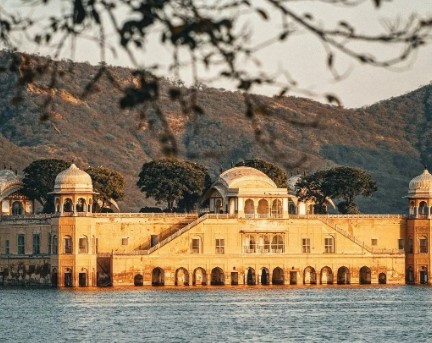Renaissance in Rajasthan
Renaissance in Rajasthan
In
Rajasthan the impact of cultural renaissance in the field of education was
unprecedented, consequently considerable propagation of education took place in
the State. For the first time, educational system based on English pattern was
introduced in Ajmer.
Similarly,
provisions for education were made in the erstwhile princely states of Alwar,
Bharatpur, Jaipur etc. The Birla family contributed, its lot in the field of
education by way of establishing 'Birla Education Trust' in Jaipur region. Mayo
College was established in the year 1875 at Ajmer to impart education to the
children of kings and feudal lords. Similarly, the Christian missionary
institutions too established educational institutions at Ajmer, Beawar,
Nasirabad, Jaipur, Deoli, Alwar, Jodhpur, Udaipur, Kota etc.
In
Ajmer, the Arya Samaj played a significant role in the field of education by
way of opening several education institutions. The Arya Samaj also made lot of
efforts to promote female education. Government schools for girls were
established at Udaipur, Jaipur and Bharatpur in the year 1866. The other places
followed suit consequent upon which many more educational institutions for
girls cropped up in different parts of the State.
The
Mission girl’s schools as established at Nasirabad in the year 1862 and at
Ajmer in the year 1863 also made specific contribution in promoting and
motivating female education in the State. Although the propagation of western
education by the British Government was meant to serve their own interest yet
it helped a lot in the growth of the literary and knowledge in the State.
Consequently,
the masses of Rajasthan started raising their voice against traditional social
and cultural evils like untouchability, rigid casteism, child marriage, sati
system, bonded labor etc. Along with while they established contact with modern
science and knowledge on one hand, also remained adhered to their basic values
thereby keeping themselves linked to their own society and religion. The
institutions established by the Samaj while on one hand disseminated western
science and knowledge among the masses of Rajasthan, made people aware of Vedic
culture on the other. Consequent upon this feelings on fraternity, love for
nation and self-prestige along with knowledge developed among the people of
Rajasthan.
With
the progress in the field of education the masses develop understanding of the
ideologies and thereby make efforts to eradicate the evils and ill-traditions
through organized movements. Thus, the more is done for the growth and
development of education the better it would be. Presently along with the
different linguistic academics, the Rajasthan Sahitya Academy; Rajasthan Hindi
Granth Academy; Arabi-Pharsi Sodh Sansthan, Tonk; Rajasthani Bhasa Sahitya and Sanskrit
Academy of Bikaner are playing commendable role in the growth and development
of education in the state. Consequently the people of Rajasthan are in a state
of total consciousness from the view point of culture.
The
impact of the wave of renaissance in the socio-religious and cultural fields as
witnessed in the mediaeval age was visible in Rajasthan too and there existed a
paramount need to free the suffering mases from the tentacles of several
customs related to religious conversion and social evils with which the state
of Rajasthan was pasted during the age. A country wide movement was launched
with the objectives of arresting religious conversion and restraining the
growing autocratic designs of the brahmins.
The
prominent pioneers of this movement were Dadu Dayal in Rajasthan, Nanak in
Punjab, Kabir and Ramanand is Uttar Pradesh, Nemdev, Turkaram and Ramdas in
Maharastra, Ramanuj in South and Jaidev and Chaitanya in Bengal. All these
saints had a faith in the unity of God but were, nevertheless, against
idoltary. They all considered the caste system to be wrong and denounced it in
storng words.
Thereafter
in nineteenth century social reformers like Raja Ram Mohan Roy, Swami Dayanand
Saraswati, Swami Vivekanand came forward in this direction, who strongly lashed
out at social conservatism and superstitious and launched movements and
established institutions to combat the same. Raja Ram Mohan Roy founded the
Brahma Samaj in the year 1828 while Swami Dayanand founded the Arya Samaj in
1875 and Swami Vivekanand established Ram Krishna Mission in the year 1897.
Thus, in the 19th century incessant efforts were made by these socio-religious
reformers to bring about reformation in social and religious fields so as to
enable people to develop the right attitude towards God and save themselves
from the prevalent social evils as well. Similarly they placed the night
perspectives about eradication of caste system, women education, widow
remarriage, abolition of sati system, child marriage, untouchability, polygamy
etc. before the masses in order to help reform the conditions pertaining to
these.
Impact of Renaissance
The
reformation movements in the form of Arya Samaj, Prathana Samaj ete, motivated
the people to develop a new outlook in the society. This, in turn, had its
impact on the followers of Sanatan Dharama too who had to open many 'Rishikuls
to protect their mythological doctrines and take resort to logical arguments to
validate their principles. Thus, a wave of new awakening among the masses came
to surface during nineteenth century due to the efforts of social reformers and
the adherers of Sanatan religion.
In
the opinion of these social reformers, the process of thinking and
understanding in terms of the prevailing conditions and factual realities was
fast developing A new enthusiasm along with the growth of the tendency of
religion and knowledge through the preachings and interpretation of the
scriptures by the Arya Samajists and Sanatandharmis was developing among the
educated massed too.
The
social reformers established hospitals, widow homes and schools etc.to attract
the masses towards their respective religious ideologies. Lala Lajpat Rai
founded the 'Servants of people Society' in Punjab. The Prarthana Samaj
established 'Deccan Education Society' in Maharastra in the year 1889 and in
Poona the 'Servants of India Society' was established by Gopal Krishna Gokhale.
Thus, the feelings of self-sacrifice and service to nation developed among the
educated masses and their faith in religious ostentation as well as social
conservation declined through national renaissance.
Thankyou
comment your queries below









0 Comments